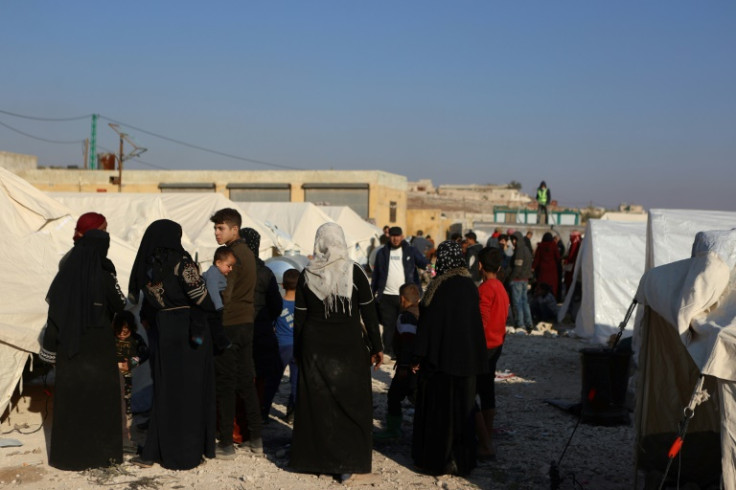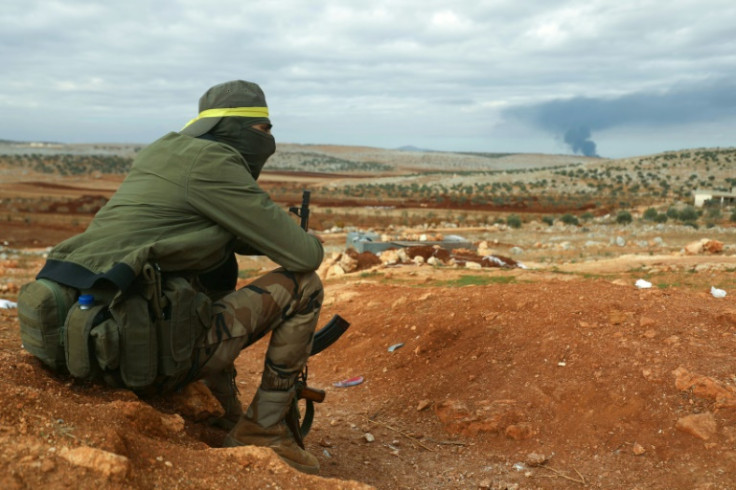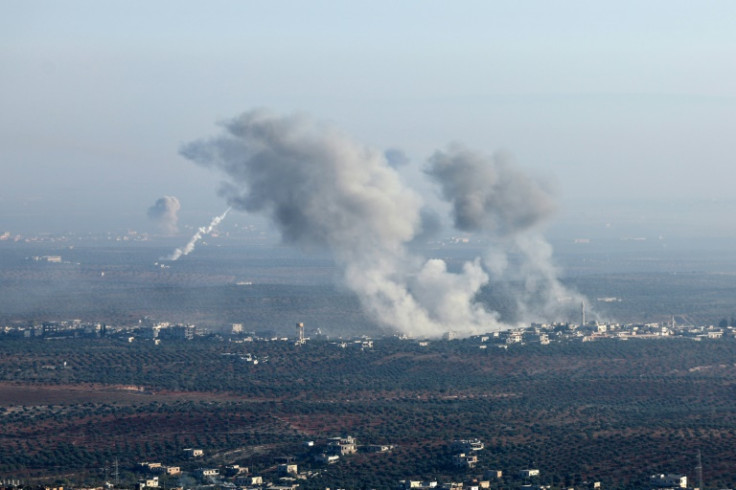Syria Jihadists, Allies Shell Aleppo In Shock Offensive

Jihadists and their Turkish-backed allies shelled Syria's second city Aleppo on Friday, in a major offensive against government troops that has sparked some of the deadliest fighting the country has seen in years.
The violence has killed 242 people, according to a Syrian war monitor, most of them combatants on both sides but also including civilians, including 24 dead, most of them in Russian air strikes.
The offensive began at a sensitive time for Syria and the region, with a fragile ceasefire between Hezbollah and Israel taking effect earlier this week in neighbouring Lebanon.
Syria's civil war began when President Bashar al-Assad's forces cracked down in 2011 on pro-democracy protests.
Since then, it has killed more than 500,000 people, displaced millions and battered the country's infrastructure and industry.
Over the years, the conflict has morphed into a complex war drawing in jihadists and foreign powers, including Assad allies Russia, Iran and Hezbollah.
While the army regained control over most of the territory that it lost earlier in the war, the area where the jihadists and their allies are based has been subject to a truce since 2020.
This week, jihadists and factions backed by Turkey, which neighbours Syria and supported the anti-Assad rebellion, launched a major surprise offensive against government forces.
On Friday, they shelled a university student residence in government-held Aleppo, northern Syria's main city, according to state media, which reported four civilian deaths in the latest attack.
By Friday, they had wrested more than 50 towns and villages in northern Syria, according to the Syrian Observatory for Human Rights, the biggest advances that anti-government factions had made in years.
The fighters had on Thursday cut the highway linking Aleppo to Syria's capital Damascus, according to the Britain-based Observatory.
"The highway has now been put out of service, after it was reopened by regime forces years ago," said the monitor, which has a network of sources inside Syria.
The UN Office for the Coordination of Humanitarian Affairs said "more than 14,000 people -- nearly half are children -- have been displaced" by the violence.
At a press conference earlier this week, Mohamed Bashir of the jihadist Hayat Tahrir al-Sham (HTS) said: "This operation aims to repel the sources of fire of the criminal enemy from the frontlines."
HTS, led by Al-Qaeda's former Syria branch, controls swathes of the northwest Idlib region as well as small parts of neighbouring Aleppo, Hama and Latakia provinces.
The Idlib region is subject to a ceasefire, repeatedly violated but which had largely been holding, brokered by Turkey and Russia after a Syrian government offensive in March 2020.
An AFP correspondent based in rebel-held areas said there were intense exchanges of fire in an area just seven kilometres (four miles) from the city of Aleppo.
HTS has close ties with Turkish-backed factions, and analyst Nick Heras of the New Lines Institute for Strategy and Policy said the fighters were "trying to preempt the possibility of a Syrian military campaign in the region of Aleppo".
According to Heras, the Syrian government and its key backer Russia had been preparing for such a campaign.
Russia intervened in Syria's civil war in 2015, turning the momentum of the conflict in favour of the president, whose forces at the time had lost control of most of country.
Turkey, Heras said, may be "sending a message to both Damascus and Moscow to back down from their military efforts in northwest Syria".
Other interests are also at stake.
As well as Russia, Assad has been propped up by Iran and allied militant groups, including Lebanon's powerful Hezbollah.
Anti-government forces are, according to Heras, "in a better position to take and seize villages than Russian-backed Syrian government forces, while the Iranians are focused on Lebanon".
A general in Iran's Revolutionary Guards was killed in Syria on Thursday during the fighting, an Iranian news agency reported.
Iranian foreign ministry spokesman Esmaeil Baghaei said the deadly offensive was "part of a plan by the diabolical regime (Israel) and the US" and called for "firm and coordinated action to prevent the spread of terrorism in the region".
During its war with Hezbollah in Lebanon, Israel intensified its strikes on Iran-backed groups in Syria including Hezbollah.
Rami Abdel Rahman, director of the Observatory, said Assad's forces "were totally unprepared" for the attack.
"It is strange to see regime forces being dealt such big blows despite Russian air cover and early signs that HTS was going to launch this operation," Abdel Rahman said.
"Were they depending on Hezbollah, which is now busy in Lebanon?"


© Copyright AFP 2025. All rights reserved.





















